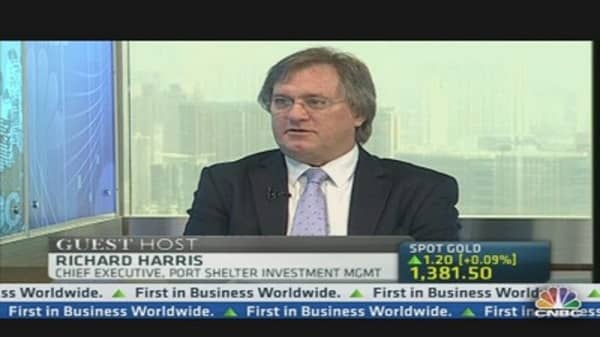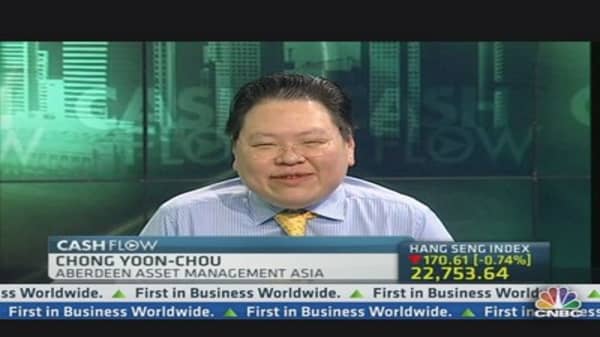Asian stocks rose on Wednesday but ended off session highs as a weak Australian dollar, volatile Japanese markets and renewed fears of the U.S. Federal Reserve tapering its bond-buying program scaled back momentum.
The Nikkei pared gains after rallying as much as 1 percent in a choppy session, South Korea's Kospi hit an eight-week high at the key 2,000 level and Australian equities were flat.
The Shanghai Composite also pared gains after hitting a fresh two-month high earlier in the session. So far, the index has notched up gains of 1.5 percent for this week to be Asia's best-performing index.
(Read More: The 'Great Rotation' — Is It Finally Happening?)
Sentiment in Asia was lifted after upbeat U.S. data helped propel the Dow to record heights. Single-family home prices rose in March to their best annual gain in seven years, according to the S&P/Case Shiller composite index.
All eyes were on Bank of Japan (BOJ) governor Haruhiko Kuroda as he delivered a speech in Tokyo on Wednesday. Kuroda called for global flexibility in dealing with the lingering financial crisis, underlining both the challenge and the need for "Abenomics," which combines both fiscal and monetary stimulus measures.




